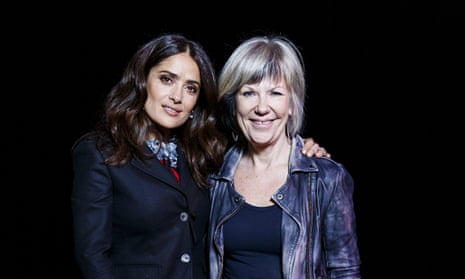Leading women in the arts have called on museums and galleries to look at the way they hand out top jobs, as the guard changes at two great British institutions: the National Gallery and the National Portrait Gallery. The recent choice of male directors for both has prompted fresh demands for fair representation.
“All my working life, I have been speaking up about how women can smash the glass ceiling, after all it is only glass. Why haven’t we done it?” asked Ruth Mackenzie, director of the Cultural Olympiad in 2012. Her sentiments were echoed by Jude Kelly, artistic director of the Southbank Centre: “Not enough has changed yet. Everybody is talking the right language and the atmosphere is charged. But that is not the same as actually making the changes.”
In January 37-year-old Nicholas Cullinan was announced as the 12th man in a row to run the National Portrait Gallery off Trafalgar Square, and last week Gabriele Finaldi, 49, was appointed head of the neighbouring National Gallery. Since its foundation it has been run by 14 men, including Charles Saumarez Smith, who now runs the Royal Academy in Piccadilly.
If the top job at the British Museum also comes up this spring, following the rumoured departure of Neil MacGregor, pressure to appoint a woman will be greater than ever. MacGregor, the 19th man to run the museum, is thought to have been approached to run the new Humboldt Forum in Berlin.
But Britain stands to lose more than MacGregor to Europe, according to Mackenzie, who believes female talent is better recognised elsewhere. As the new artistic director of the Holland Festival, she is working with a female managing director.
“The new director of the Stedlijk Museum [in Amsterdam] is also a woman, and her predecessor was a woman,” Mackenzie said. “The CEO of Dutch National Opera and Ballet is a woman. Nobody thinks this is remarkable. One day we won’t have to protest about the brilliance of women leaders working in culture. One day this will simply no longer be a topic because the leaders running our museums and galleries are equally likely to be women as men.”
Britain does have a few female directors, including Diana Lees at the Imperial War Museum, Janet Vitmayer at the Horniman Museum in south London and Maria Balshaw at Manchester’s Whitworth art gallery. But it is Nicholas Serota who is in charge at the Tate galleries, and the German Martin Roth at the V&A has been director since September 2011. (Roth is the latest in a succession of men going back to Henry Cole in 1852, punctuated only by the appointment of Dame Elizabeth Esteve-Coll in the late 1980s.) Ian Blatchford is director at the Science Museum, while at the Natural History Museum it is Michael Dixon. In Oxford, Alexander Sturgis became director of the Ashmolean, and in Gateshead Godfrey Worsdale is director of the Baltic. At the Walker in Liverpool David Fleming is director, and at the British Libary in London, Roly Keating, formerly of the BBC, is chief executive.
Arts Council England, the central body that handles many major arts funding decisions, has still only had one female chair, Liz Forgan. The current chair is Peter Bazalgette. The biggest role in television, BBC director general, went to Tony Hall in 2013. He handed over his job at the Royal Opera House to Alexander Beard, formerly deputy at the Tate.
On Beard’s appointment two years ago, the Observer surveyed the leaders of cultural organisations on a wider scale, including leading performance venues. Of the 30 institutions examined then, only four were run by women. One was the Southbank Centre, where Kelly is still in charge. Speaking then, she said: “It is very difficult to change things if the world is nearly always telling you that men basically are running the world.”
This weekend she described herself as optimistic. “The right people have to really want the world to change the way it looks before things will happen. There is still that kind of sense that people on appointment boards are asking: could a woman do that? And you would never get that, of course, about a man.”
Kelly, who has just returned from launching an American version of her Women of the World festival in Washington, argues that childcare and greater responsibility for ageing parents can hold women back but believes men in power are beginning to understand that calling for more women in responsible jobs is not necessarily a criticism of the work they have done.
Deborah Bull, director of culture at King’s College, London, also highlights the importance of female role models leading arts organisations but suspects that diversity problems there may be rooted in academia. “The thought that men could decide that appointing a woman was too risky is both horrific and shocking,” she said. “Nobody is actively trying to exclude anyone – it is just that these habits are ingrained. Even where there are male hierarchies doing the appointing, and where, of course, they want the best person for the job, I don’t see why that person should not be someone from a different social class, someone with a disability – or even a woman.”
Bull called for a fresh look at diversity across arts management. “Often the landscape is shaped by the structures at the very top. If you look at national government, you also see a lack of diversity, and that ricochets down the system. There are challenges we have to address at every level. We have to learn to be comfortable with difference and make sure our prejudices don’t mean we are favouring certain types. By helping us all to ask these questions, nobody is trying to exclude anyone – these are very ingrained habits.”

Comments (…)
Sign in or create your Guardian account to join the discussion